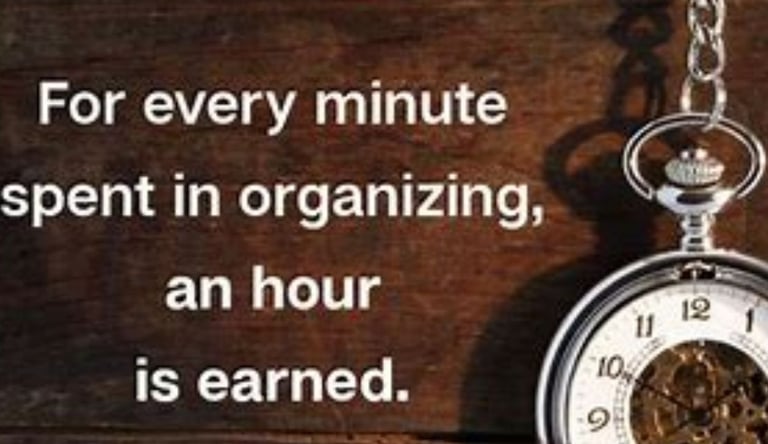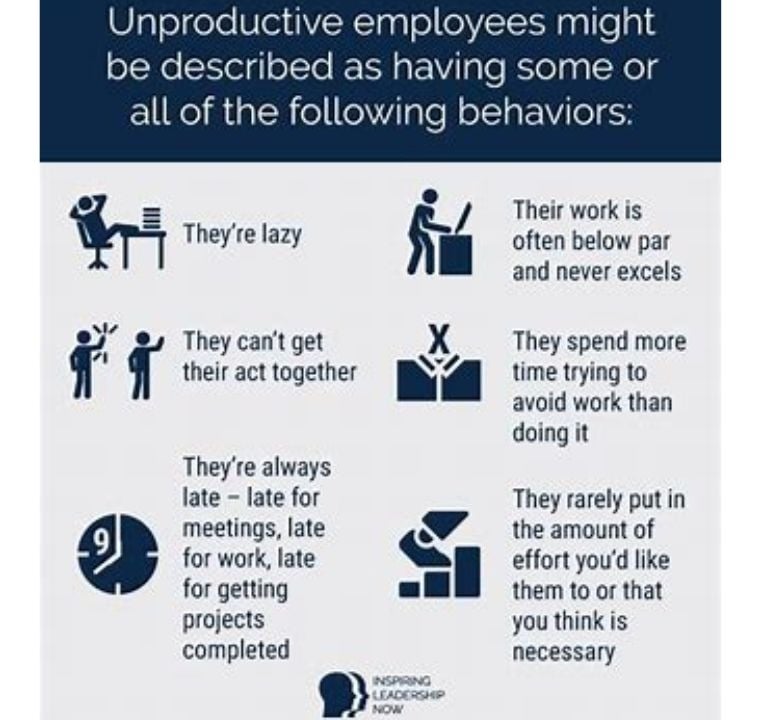
Health is a crown on the heads of the healthy that only the sick can see.

💪 How to Overcome Dependence and Laziness
💪 Break Free from Laziness and Dependency — Practical & Spiritual Tools Struggling to take control of your time and motivation? Learn how to overcome dependence and laziness with actionable steps, mental strategies, and faith-based discipline. 🕒🕌
GENERAL
Dr Hassan Al Warraqi


💪 How to Overcome Dependence and Laziness
Struggling to take control of your time and motivation? Learn how to overcome dependence and laziness with actionable steps, mental strategies, and faith-based discipline. 🕒🕌
I understand that you are feeling lazy and dependent on others. It is important to remember that you are not alone in this feeling. Many people experience these feelings at some point in their lives.
There are a few things you can do to address these feelings:
Identify the underlying cause. What is making you feel lazy and dependent on others? Once you know the cause, you can start to address it.
Set small goals for yourself. Don't try to change everything all at once. Start by setting small goals for yourself, such as getting out of bed on time or making your own breakfast.
Reward yourself for your accomplishments. When you reach a goal, reward yourself with something you enjoy. This will help you stay motivated.
Find a support system. Talk to a friend, family member, or therapist about how you are feeling. They can offer support and guidance.
It is also important to remember that it is okay to ask for help when you need it. There is no shame in admitting that you need assistance. In fact, asking for help can be a sign of strength.
Here are some additional tips for overcoming laziness and dependence on others:
Find activities that you enjoy. When you are doing something that you enjoy, you are more likely to be motivated and productive.
Break down large tasks into smaller, more manageable tasks. This will make the task seem less daunting and more achievable.
Set deadlines for yourself. Having a deadline will help you stay on track and avoid procrastination.
Find an accountability partner. Having someone to answer to can help you stay motivated and on track.
Remember, change takes time and effort. Don't get discouraged if you don't see results immediately.
Just keep working at it and you will eventually reach your goals.
If you are struggling to overcome laziness and dependence on others on your own,
Please seek professional help. A therapist can help you identify the underlying causes of your feelings and develop a plan to address them.
Diabetes is a chronic health condition that affects the way your body turns food into energy. There are two main types of diabetes: type 1 diabetes and type 2 diabetes.
Type 1 diabetes is an autoimmune disease that causes your body to attack the cells in your pancreas that produce insulin. Insulin is a hormone that helps your body use glucose for energy.
Type 2 diabetes is the most common form of diabetes. It occurs when your body becomes resistant to insulin or doesn't make enough insulin.
Diabetes can cause a number of health problems, including heart disease, stroke, blindness, and kidney disease. It is important to manage your diabetes to prevent these complications.
Here are some tips for managing diabetes:
Eat a healthy diet. Eating a healthy diet can help you control your blood sugar levels and reduce your risk of complications from diabetes.
Exercise regularly. Exercise helps to improve your insulin sensitivity and reduce your blood sugar levels.
Take your medications as prescribed. If you are prescribed diabetes medications, it is important to take them as prescribed by your doctor.
Monitor your blood sugar levels regularly. Monitoring your blood sugar levels can help you to identify any problems early and make necessary changes to your treatment plan.
It is also important to talk to your doctor about your diabetes management plan. They can help you to develop a plan that is right for you and your individual needs.
If you are feeling lazy or dependent on others to help you manage your diabetes, there are a few things you can do:
Set small goals for yourself. Don't try to change everything all at once. Start by setting small goals, such as cooking one healthy meal per week or exercising for 15 minutes per day.
Reward yourself for your accomplishments. When you reach a goal, reward yourself with something you enjoy. This will help you stay motivated.
Find a support system. Talk to a friend, family member, or Diabetes is a chronic health condition that affects the way your body turns food into energy. There are two main types of diabetes: type 1 diabetes and type 2 diabetes.
Type 1 diabetes is an autoimmune disease that causes your body to attack the cells in your pancreas that produce insulin. Insulin is a hormone that helps your body use glucose for energy.
Type 2 diabetes is the most common form of diabetes. It occurs when your body becomes resistant to insulin or doesn't make enough insulin.
diabetes can cause a number of health problems, including heart disease, stroke, blindness, and kidney disease. It is important to manage your diabetes to prevent these complications.
Here are some tips for managing diabetes:
*Eat a healthy diet.** Eating a healthy diet can help you control your blood sugar levels and reduce your risk of complications from diabetes.
*Exercise regularly.** Exercise helps to improve your insulin sensitivity and reduce your blood sugar levels.
*Take your medications as prescribed.** If you are prescribed diabetes medications, it is important to take them as prescribed by your doctor.
*Monitor your blood sugar levels regularly.** Monitoring your blood sugar levels can help you to identify any problems early and make necessary changes to your treatment plan..
If you are feeling lazy or dependent on others to help you manage your diabetes, there are a few things you can do:
*Set small goals for yourself.** Don't try to change everything all at once. Start by setting small goals, such as cooking one healthy meal per week or exercising for 15 minutes per day.
*Reward yourself for your accomplishments.** When you reach a goal, reward yourself with something you enjoy. This will help you stay motivated.
*Find a support system.** Talk to a friend, family member, or diabetes support group about how you are feeling. They can offer support and guidance.
*Seek professional help.** If you are struggling to manage your diabetes on your own, please seek professional help. A doctor or diabetes educator can help you to develop a management plan that is right for you and your individual needs.
Remember, change takes time and effort. Don't get discouraged if you don't see results immediately. Just keep working at it and you will eventually reach your goals.diabetes support group about how you are feeling. They can offer support and guidance.
Seek professional help. If you are struggling to manage your diabetes on your own, please seek professional help. A doctor or diabetes educator can help you to develop a management plan that is right for you and your individual needs.
Remember, change takes time and effort. Don't get discouraged if you don't see results immediately. Just keep working at it and you will eventually reach your goals.
keywords
Lazy, depending on others, do it for me , diabetes, professional help ,Reward ,change takes time and effort, Don't try to change everything all at once,reward yourself with something you enjoy
Dependence, Laziness, and Self-Discipline
To provide a comprehensive summary of key insights and concepts derived from provided sources on dependence (in its various forms), laziness,
self-discipline, and their interconnections, optimized for SEO.
Individuals interested in understanding these concepts and their impact on personal and societal levels.
Key Points and Main Themes
1. Dependence (Dependent Personality Disorder and Codependency)
Definition of Dependent Personality Disorder:
A psychological condition characterized by an excessive need for care, leading to dependent behaviors.
Includes difficulty making decisions without excessive advice, fear of expressing disagreement to avoid losing support, and lack of confidence in initiating projects independently.
Diagnosed based on DSM-5 criteria, with symptoms appearing post-adolescence.
Quote: "Dependent personality disorder is diagnosed when individuals exhibit a persistent, excessive need for care, resulting in dependent behavior..."
Codependency:
Originated in the context of alcohol addiction to describe the dynamics of those around the addict.
Described as a "loss of self," characterized by issues with intimacy, controlling behavior, denial, ineffective communication, and blurred personal boundaries.
One party may enable the other’s addiction or control them, while the other lags in emotional maturity.
Codependent individuals derive their self-worth from meeting others’ needs, neglecting their own.
Quote: "Codependency is termed a ‘loss of self,’ with relationships marked by issues in intimacy, control, denial, and ineffective communication..."
Causes of Dependence:
Psychoanalytic, social learning, and attachment theories link it to upbringing and emotional bonds.
Dysfunctional families where children prioritize parents’ needs over their own foster dependence.
Repeated patterns of meeting others’ needs lead individuals to feel valued only when fulfilling others’ desires.
Types of Dependence:
Collusive Codependency: Mutual negative reinforcement, often involving exploitation or abuse.
Traditional Codependency: Stems from socialization issues, where individuals feel they must rely on someone or something to have value.
Women may tie their worth to a man, while men may depend on success or work.
Complications of Dependence:
Impaired job performance due to lack of independence.
Increased vulnerability to verbal or physical abuse due to low self-confidence.
Relationship issues, excessive jealousy, emotional volatility, and difficulty switching roles.
Signs of Dependence:
Difficulty making independent decisions.
Fear of loneliness and efforts to avoid it.
Excessive need for approval and validation.
Sensitivity to criticism and susceptibility to control by others.
Treatment for Dependence:
Seek psychological and social support.
Identify personal needs and foster independence.
Build new habits and set achievable goals.
Enhance self-confidence and perseverance.
2. Laziness
Definition:
Aversion to effort despite physical capability.
Considered a negative trait linked to low motivation, self-confidence, or interest.
Psychological Perspective:
Not a mental disorder but associated with lack of knowledge, disinterest, or distraction.
Excess dopamine may reduce sensitivity, contributing to laziness.
Physical inactivity affects brain health, causing insulin resistance and increased
Alzheimer’s-related markers.
Quote: "Laziness negatively impacts brain health..."
Laziness in Islam:
A disapproved trait, with Prophet Muhammad (PBUH) seeking refuge from it.
Linked to hypocrisy or reluctance in worship.
Quote from Hadith: "O Allah, I seek refuge in You from anxiety, sorrow, incapacity, and laziness..."
Types of Laziness in Islam:
General reluctance in worship with aversion (hypocrites).
Partial reluctance with weak desire (sinful Muslims).
Physical or temporary laziness due to fatigue.
Overcoming Laziness:
Break tasks into smaller parts.
Ensure adequate rest and exercise.
Motivate oneself by focusing on goal benefits.
Avoid procrastination and reflect on negative consequences.
3. Self-Discipline
Definition and Importance:
The ability to control habits and behaviors to achieve goals.
Fundamental to success and overcoming laziness.
Signs of Weak Self-Discipline:
Waiting for inspiration and delaying tasks.
Benefits of Self-Discipline:
Pushing beyond comfort zones.
Freeing individuals from laziness, fear, and doubt.
Quote: "Self-discipline is a form of freedom, liberating one from laziness, expectations, and fear..." (Harvey Dorfman).
Steps to Build Self-Discipline:
Set clear SMART goals (Specific, Measurable, Achievable, Relevant, Time-bound).
Eliminate distractions.
Partner with an accountability buddy.
Create and prioritize task lists.
Track progress regularly.
4. Relationship Between Breaking Free from Dependence, Self-Confidence, Perseverance, and Self-Esteem
Study on Breaking Free from Dependence:
Aimed to predict regulated independence in young children through self-confidence, perseverance, and self-esteem.
Breaking Free from Dependence: Foundation for an independent personality reliant on self.
Self-Confidence: A child’s belief in their ability to make decisions.
Perseverance: Continued effort despite challenges.
Self-Esteem: Positive self-regard and desire for independence.
Study Findings:
Perseverance was the strongest predictor of independence, followed by self-confidence, then self-esteem.
Quote: "Breaking free from dependence is key to building a child’s personality and success..."
5. Practical Recommendations
Overcoming Dependence:
Take small steps to build independence.
Set realistic goals.
Seek support while maintaining healthy boundaries.
Overcoming Laziness:
Divide tasks into manageable parts.
Exercise and avoid procrastination.
Focus on the benefits of achieving goals.
Building Self-Discipline:
Create SMART goals and organized task lists.
Monitor progress and minimize distractions.
Conclusion
Dependence, laziness, and self-discipline are interconnected concepts that shape individual autonomy and success.
Dependence, whether a personality disorder or codependency, hinders independence and impacts relationships negatively.
Laziness reflects an aversion to effort, addressable through motivation and structure. Self-discipline is the cornerstone for overcoming challenges and achieving goals.
Research highlights the critical role of self-confidence, perseverance, and self-esteem in fostering independence.
By understanding these concepts and applying practical strategies, individuals can overcome dependence and laziness, cultivating a more autonomous and successful life.
SEO Keywords: dependence, codependency, laziness, self-discipline, self-confidence, perseverance, self-esteem, breaking free from dependence, personal development, mental health.
Frequently Asked Questions About FAQS Dependence, Laziness, and Self-Discipline
What is dependence, and how does it manifest in different relationships?
Dependence refers to an excessive and persistent need for care from others, leading to dependent behaviors.
It manifests as:
Romantic relationships: Excessive attachment to a partner, over-sacrificing to please them, and deriving self-worth from the relationship.
Family relationships: In dysfunctional families, children learn to prioritize parents’ needs over their own.
Generally: Inability to make daily decisions independently, fear of expressing opinions to avoid losing support, lack of confidence in starting projects, willingness to go to great lengths for others’ approval, and discomfort with being alone.
Keywords: dependence in relationships, dependent behaviors, self-worth.
What are the root causes of dependence from psychological and social perspectives?
Dependence has varied causes:
Socially: Faulty socialization where individuals feel they must rely on someone or something to have value.
Psychologically: Childhood emotional or psychological trauma leads to repression or frustration, fostering dependent patterns in adulthood.
Defense mechanisms: Dependence may serve as a survival strategy in dysfunctional family environments.
Family dynamics: Lack of clear rules, unclear roles, blaming others, negative expectations, and suppression of emotions contribute significantly.
Keywords: causes of dependence, socialization, childhood trauma, family dynamics.
What is the difference between dependence and dependent personality disorder? What are the diagnostic criteria for the latter?
Dependence: A general term for excessive reliance on others.
Dependent Personality Disorder: A diagnosed psychological condition based on DSM-5 criteria, including:
Persistent, excessive need for care, leading to dependent behavior.
Difficulty making daily decisions without excessive advice.
Fear of expressing disagreement to avoid losing support.
Lack of confidence in initiating projects independently.
Willingness to go to great lengths for support.
Anxiety when alone or responsible for oneself.
Note: Symptoms must begin post-adolescence.
Keywords: dependent personality disorder, DSM-5 criteria, psychological dependence.
What is codependency (collusive dependence), and how does it affect relationships?
Definition: A form of dependence where both parties engage in negative or harmful cooperation, each reinforcing the other’s behavior due to mutual needs.
Characteristics:
Relationships filled with material or emotional exploitation, possibly including abuse.
Volatility between strength and weakness, such as violence followed by closeness.
Persistence because each party feels valued by the other, even negatively.
Impact: Hinders emotional growth, fosters mutual reliance, and leads to unhealthy relationships.
Keywords: codependency, collusive dependence, unhealthy relationships.
How is laziness linked to dependence, and what psychological factors contribute to laziness?
Link: Laziness reflects an aversion to independent effort, which can lead individuals to rely on others to complete tasks, similar to dependence.
Psychological Factors:
Low self-confidence and self-esteem.
Lack of interest or belief in the value of tasks.
Insufficient knowledge or training.
Low motivation due to overstimulation or distraction.
Passive behavior to avoid responsibility or confrontation.
Keywords: laziness and dependence, psychological factors, low motivation.
What are the negative effects of laziness on general health and brain health specifically?
General Health:
Increased risk of insulin resistance.
Negative impact on physical fitness and cardiovascular health.
Brain Health:
Increased production of reactive oxygen species in the hippocampus (linked to memory and learning).
Elevated markers of Alzheimer’s-related proteins after short periods of inactivity.
Potential cognitive decline due to reduced mental and physical activity.
Keywords: effects of laziness, brain health, insulin resistance, cognitive decline.
What is self-discipline, and how can it be developed to overcome laziness and dependence?
Definition: Self-discipline is the ability to control behaviors and habits to achieve goals, fostering independence.
Development Steps:
Set clear, measurable SMART goals (Specific, Measurable, Achievable, Relevant, Time-bound).
Eliminate distractions.
Partner with an accountability buddy to maintain commitment.
Create organized task lists and prioritize them.
Build positive daily habits.
Effectively manage negative emotions.
Benefit: Frees individuals from laziness and dependence, empowering control over their lives.
Keywords: self-discipline, habit development, overcoming laziness, achieving goals.
How do self-confidence, perseverance, and self-esteem contribute to breaking free from dependence?
Self-Confidence: Enables independent decision-making and responsibility, reducing reliance on others.
Perseverance: Promotes persistence through challenges, supporting autonomy and reducing dependence.
Self-Esteem: Enhances self-worth, decreasing the need for external validation and fostering personal freedom.
Research: Studies show a positive correlation between these factors and breaking free from dependence, with perseverance playing a prominent role.
Keywords: self-confidence, perseverance, self-esteem, breaking free from dependence.
Conclusion
Dependence, laziness, and self-discipline are interconnected concepts that impact individual autonomy and mental well-being.
Dependence manifests as an excessive need for care, while laziness reflects avoidance of effort, both of which can be overcome through self-discipline.
Self-confidence, perseverance, and self-esteem are critical pillars for breaking free from dependence and building an independent, successful life.
SEO Keywords: dependence, laziness, self-discipline, self-confidence, perseverance, self-esteem, breaking free from dependence, personal development, mental health, healthy relationships.
💪 How to Overcome Dependence and Laziness: A Mind-Body-Spirit Guide
Struggling with dependence (on people, habits, or comfort) and laziness isn’t a moral failure — it’s often a symptom of mental fatigue, lack of purpose, or overstimulation. The good news? You can reclaim your energy, focus, and independence through practical and spiritual steps.
🚧 1. Recognize the Root Causes
Possible CauseExample😞 Lack of motivationNo meaningful goals or inner drive📱 OverstimulationAddicted to screens, dopamine overload🤯 Mental clutterToo many unfinished tasks or guilt😰 Fear of failureAvoiding effort due to perfectionism🤝 DependencyRelying too much on others’ approval or help
🔧 2. Practical Steps to Break the Cycle
🕒 Structure Your Day
Use time-blocking: Allocate specific hours for tasks
Start with small wins (2–5 min tasks)
🛏️ Beat Physical Inertia
Get up immediately when your alarm rings
Do 2 minutes of movement: jumping jacks, stretching, walking
📴 Digital Detox
Remove distractions during focus time (use website blockers)
Replace passive scrolling with reading, journaling, or planning
✅ Use the "5-Second Rule" (Mel Robbins)
Count down from 5 and take action before your brain talks you out of it.
🧠 3. Mental & Emotional Strategies
Affirmation: “I don’t wait to feel ready — I act, and clarity follows.”
Journaling: Write your excuses, then counter them with truth.
Accountability: Tell someone your goals and report progress.
🕌 4. Spiritual Approach (Islamic Perspective)
PracticeBenefit🌙 FastingTrains self-control, breaks attachment to ease🧎 PrayerBuilds routine, presence, and inner discipline🤲 DuaSeek help from Allah against laziness (كسل)📿 DhikrRefreshes the heart and strengthens willpower
The Prophet ﷺ said:
“O Allah, I seek refuge with You from incapacity and laziness...” (Bukhari & Muslim)
🌱 5. Replace Comfort with Challenge
Every time you feel lazy, do one thing you’re avoiding — no matter how small.
Make growth your new comfort zone.
“You will never improve if you're always avoiding discomfort.”
✅ Summary Table
ProblemSolutionLazinessMove immediately, remove frictionDependenceBuild self-reliance through small tasksNo motivationDefine why, not just what you doFear of failureTake action without overthinkingDisconnectedAnchor yourself in prayer, fasting, and purpose
Dr. Hassan Al Warraqi is a wellness educator and founder of H-K-E-M.com, dedicated to helping individuals break free from physical, emotional, and behavioral stagnation.
He blends insights from neuroscience, Islamic principles, and natural healing to guide readers toward self-discipline, independence, and inner strength. His mission is to inspire lasting change through practical, holistic approaches.



































